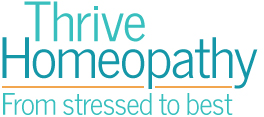Chasing Away The Baby Blues: An Holistic Approach To Postnatal Depression

Free Discovery Call
A free 20 minute call for you to find out how homeopathy could help you, and what to expect from working with me.
Postnatal Depression (PND) – we’ve all heard of it, right? But how would you know if you had it, or if someone you knew had it? Depression generally, is not much talked about in our society, especially when it relates to being a Mother. This is because it can bring a certain amount of shame with it. New Mothers often have so many expectations of themselves, which are exacerbated by the media e.g. it’s not OK to feel anything but loving feelings towards my baby; or it’s not acceptable to be anything but overjoyed when I am a new Mother. And if, like many, you are someone who has longed for a child and been excited all through pregnancy, then recognising and admitting feelings that are quite the opposite can be challenging, if not impossible. The tragedy of the Mother, who just last week is suspected of having committed suicide, is a case in point. And she was a doctor! If it’s hard for a doctor, who knows the signs, then how hard is it for the rest of us?
Symptoms of Postnatal Depression
And yet, according to the Royal College of Psychiatrists, PND affects 10-15% of women who’ve had a baby. Though it can affect all women, it is more prevalent in those who have a history of bereavements, or experience a lack of support from their partner. The symptoms are the same as for normal depression, usually coming on within 4 weeks of delivery, and in some cases extending to a year after the birth. They are…
- Feeling down and crying for much or all of the time, sometimes with a sense of hopelessness, that may extend as far as suicidal thoughts
- Withdrawing from social interaction
- Irritable or angry with your partner, new baby or other children
- Anxious – often intense and overwhelming, about your baby and her wellbeing; or that you might harm your baby; or that you yourself are ill
- Exhausted – beyond the normal tiredness that comes with being a new Mother
- Sleep problems – trouble falling asleep, or frequent or early waking not associated with the baby
- Loss or increase in appetite – i.e. forgetting meals or comfort eating
- Loss of libido – above and beyond what may be caused by the fatigue or physical discomfort associated with being a new Mother
- Delusions or hallucinations – which are one symptom of Postpartum Psychosis – a rare disorder affecting 0.1 % of women, and which can be life-threatening condition
What to do if you suspect Postnatal Depression
If you suspect you may have PND, it is essential to reach out for help…
- Go to your GP as your first port of call
- Don’t try and do it all on your own: raising children was never meant to be a solo occupation, so put as much emotional and practical support in place as possible – whether from friends, partner, family or NCT group.
- Investigate other forms of professional help e.g. counselling, support groups, complementary therapies (of which homeopathy is just one).
The Homeopathic approach
Homeopathy is a natural, non-toxic system of medicine, that stimulates your innate, self-healing mechanism (see last week’s article explaining homeopathy). The homeopathic approach to postnatal depression takes into account not only the symptoms, but also any underlying cause e.g. blood loss, traumatic birth etc. There are many homeopathic remedies for PND, so I will describe some of the keynotes of a few top ones, to give a flavour of what a homeopath might be looking for when prescribing for this condition.
SEPIA – this is the number one remedy for postnatal depression. Women who need Sepia feel exhausted, indifferent towards their family, even with feelings of rejection towards their baby sometimes. They are depressed and irritable, wanting to withdraw and be alone. And their libido is zero. And though they may cry easily, they feel worse for being consoled. However, open air and gentle exercise makes them feel better.
I had a patient who reported feeling “numb” after the initial rush of love towards her baby had gone. She was jealous of her partner’s relationship with the baby and felt unable to cater to her baby’s needs. She also showed a typical Sepia symptom of being worse for breast-feeding, which brought on a long-gone eczema – healed by Sepia.
IGNATIA – is for women whose overly high expectations of birth and Motherhood have been badly disappointed, making them feel a failure. They are irritable and upset, because they had it all planned and did everything they were supposed to. And yet nothing turned out the way they expected. Their emotions may swing from one extreme to the other, now depressed and withdrawn, now crying, even hysterical, though any outbursts will be quickly controlled. Sometimes they may sigh a lot and have the sensation of a lump in their throat.
PULSATILLA – is for women who cry easily and need a lot of reassurance and hugs. They are highly sensitive to being left and in their depressed state resort to comfort eating, despite constantly watching their weight because they lose and gain it so easily. They crave creamy things, butter, cheese and rich pastries. If they also have little thirst and are better for fresh air, then Pulsatilla is confirmed.
STAPHYSAGRIA – a woman needing Staphysagria has often had an invasive or traumatic delivery – like a forceps delivery or episiotomy. She may also have had initial or ongoing cystitis after the birth. She experiences depression that alternates with anger. She may cry from a sense of hopelessness or frustration, and is easily offended. Her anger may range from silent brooding to screaming and throwing things. Breakfast makes her feel better, but she is worse for foods that are cold or acid. She can be sleepless most of the night, then feel achey and exhausted all day.
BLOOD-LOSS REMEDIES – two major remedies for PND that comes with weakness, in women who lost a lot of blood during the birth, are CHINA and FERRUM METALLICUM. Women needing CHINA are touchy and irritable and may have a very bloated abdomen. While women needing FERRUM METALLICUM find that every emotion and exertion causes a flushing of the face.
If you take only one thing away from this article, I want it to be that there is no shame in PND. Becoming a Mother – whether for the first or fifth time – is a huge change and challenge emotionally, mentally, physically and socially. In some cultures this fact is recognised: the Mother is given a lot of practical and emotional support for many weeks after the birth. But this has been lost in our culture. The solution is an holistic one, which involves more than anything, a change in attitude… by the Mother not trying to do it all on her own and by those around her, not leaving her to cope alone. In addition, homeopathy is a gentle and highly effective therapy, which can stimulate deep and long-lasting healing at both the emotional and physical level, and can be done as a stand-alone treatment or quite safely alongside mainstream medication.
SOURCES
Boyce, P., Hickie, I., Gordon, P. 1991. Journal of Affective Disorders. Parents, partners or personality? Risk factors for post-natal depression
Di Mascio, V., Kent, A., Flander, M., Lawrence, J. 2008. Archives of Women’s Mental Health. Recovery from postnatal depression: a consumer perspective.
Murphy, R., 2005. Homeopathic Clinical Repertory. 3rd ed. Virginia. Lotus Health Institute.
If you have any queries about any of the issues mentioned above and want to contact or speak to Sarah directly, her website is Thrive Homeopathy.
Free Discovery Call
A free 20 minute call for you to find out how homeopathy could help you,
and what to expect from working with me.


